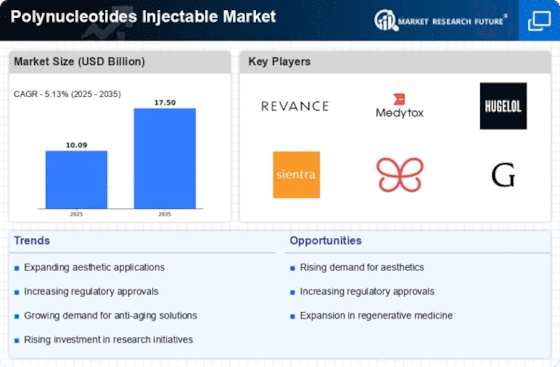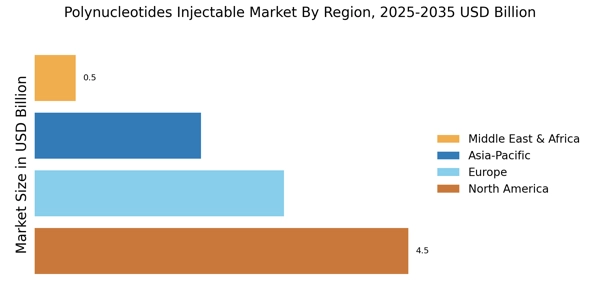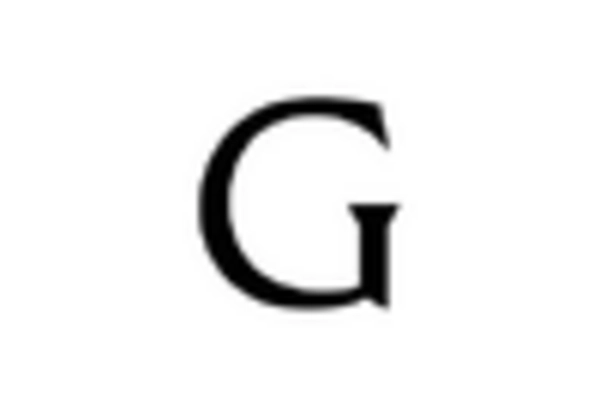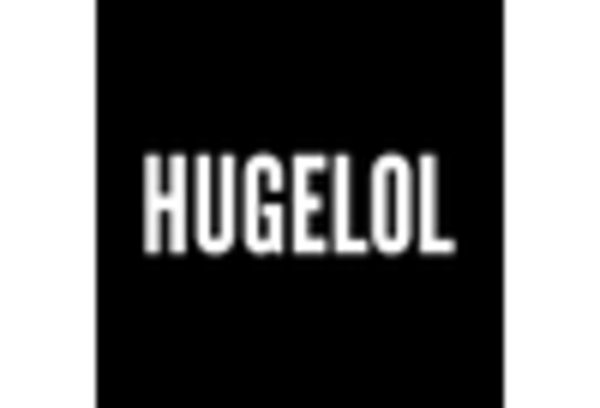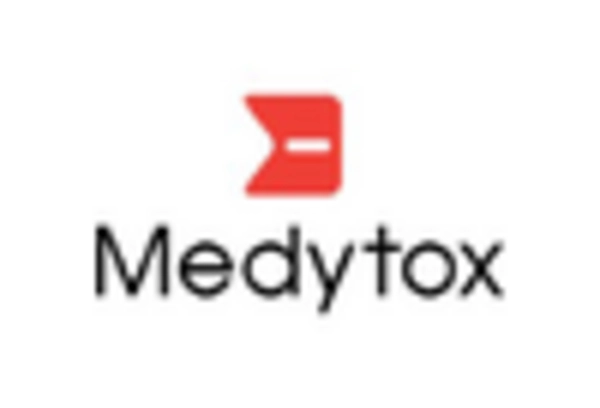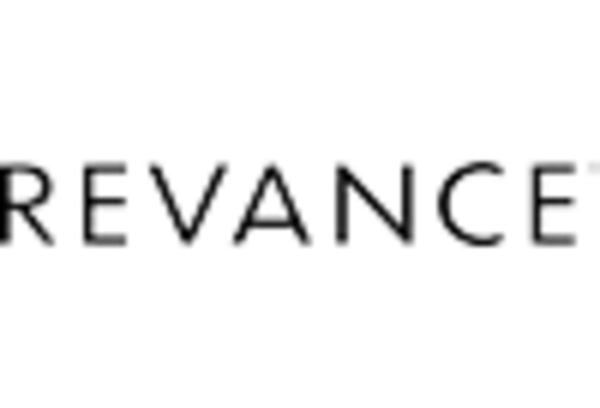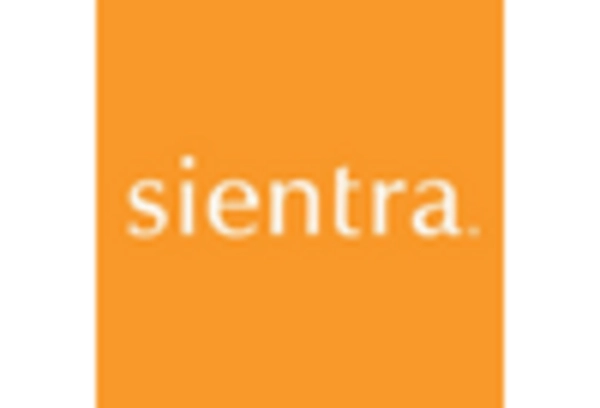Rising Geriatric Population
The increasing geriatric population is likely to drive demand within the Polynucleotides Injectable Market. As individuals age, they often seek solutions to combat the visible signs of aging, such as wrinkles and loss of skin elasticity. The World Health Organization projects that the number of people aged 60 years and older will double by 2050, reaching over 2 billion. This demographic shift suggests a growing market for aesthetic treatments, including polynucleotide injectables, which are perceived to offer effective anti-aging benefits. As healthcare providers adapt to the needs of an aging population, the Polynucleotides Injectable Market is expected to expand, catering to the increasing demand for non-invasive aesthetic solutions.
Advancements in Biotechnology
Technological advancements in biotechnology are significantly influencing the Polynucleotides Injectable Market. Innovations in the formulation and delivery of polynucleotides have enhanced their efficacy and safety profiles, making them more appealing to both practitioners and patients. For instance, the development of new manufacturing processes has improved the purity and consistency of these injectables, which is crucial for maintaining high standards in medical applications. Furthermore, the integration of biocompatible materials in polynucleotide formulations is likely to expand their use in various therapeutic areas, including dermatology and orthopedics. As a result, the Polynucleotides Injectable Market is expected to experience robust growth, driven by these technological breakthroughs that enhance product performance and patient satisfaction.
Increasing Aesthetic Awareness
The rising awareness regarding aesthetic enhancements among consumers appears to be a primary driver for the Polynucleotides Injectable Market. As individuals increasingly seek non-invasive solutions for skin rejuvenation and anti-aging, the demand for polynucleotide injectables is likely to surge. Reports indicate that the aesthetic medicine sector is projected to grow at a compound annual growth rate of approximately 10% over the next few years. This trend suggests that more consumers are prioritizing their appearance, leading to a heightened interest in products that offer effective results without the need for surgical procedures. Consequently, the Polynucleotides Injectable Market is positioned to benefit from this growing consumer base, as these injectables are perceived to provide natural-looking outcomes with minimal downtime.
Regulatory Support and Approvals
Regulatory support and approvals for polynucleotide injectables are becoming increasingly favorable, which may positively impact the Polynucleotides Injectable Market. Regulatory bodies are recognizing the potential benefits of these products, leading to streamlined approval processes and increased investment in research and development. This trend suggests that more companies are likely to enter the market, enhancing competition and innovation. Furthermore, as regulatory frameworks evolve to accommodate new technologies, the safety and efficacy of polynucleotide injectables are expected to improve, fostering greater consumer confidence. Consequently, the Polynucleotides Injectable Market is poised for growth, driven by a supportive regulatory environment that encourages the development and commercialization of these advanced therapeutic options.
Growing Interest in Regenerative Medicine
The increasing focus on regenerative medicine is emerging as a significant driver for the Polynucleotides Injectable Market. As healthcare professionals and researchers explore innovative treatments for tissue repair and regeneration, polynucleotides are gaining traction due to their potential to stimulate cellular activity and promote healing. The market for regenerative medicine is anticipated to reach substantial figures, with estimates suggesting a valuation of over 50 billion in the coming years. This growth indicates a strong interest in therapies that harness the body's natural healing processes, positioning polynucleotides as a vital component in this evolving landscape. Consequently, the Polynucleotides Injectable Market stands to benefit from the expanding applications of these injectables in regenerative therapies.


